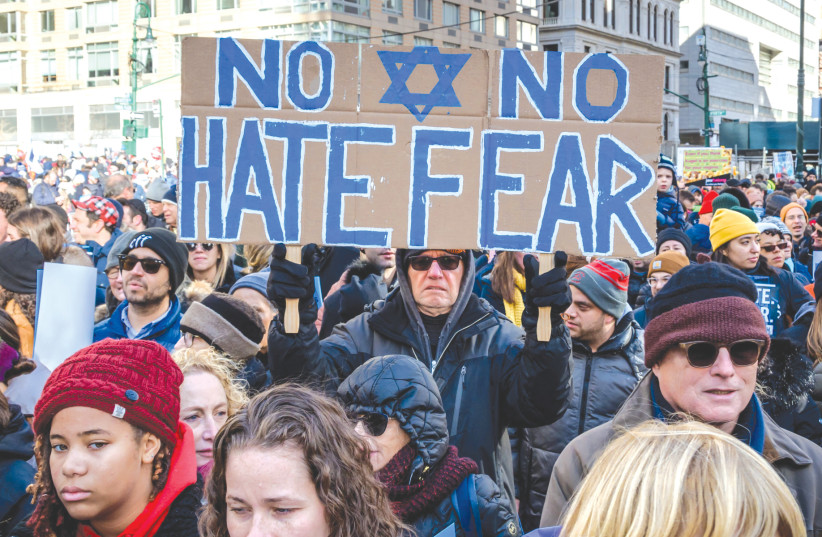Ancient antisemitism emanating from conspiracy theories, racism, religious bias, scapegoating and more is not disappearing, but there are new forms of antisemitism that pose new challenges, according to Katharina von Schnurbein, the European Commission coordinator on combating antisemitism and fostering Jewish life.
She was speaking on Tuesday at Jerusalem’s Mamilla Hotel to members and friends of the Israel Council on Foreign Relations.
Two of the key challenges in combating antisemitism are social media and artificial intelligence. Social media provides a variety of platforms for Jew-hatred and anti-Israel sentiments.
Von Schnurbein envisaged an AI situation in which a virtual concentration camp would be created, and the inmates would say that it is not so bad, considering they get free food and accommodation.
Regulations must be applied to AI to ensure that something of this nature does not happen, she said.

As for conspiracy theories that are publicized on social media, von Schnurbein cited the COVID-19 pandemic, in which conspiracy theories about Jewish involvement in the spread of the disease resulted in so many fatalities.
“Where conspiracy grows, antisemitism has already grown,” she said.
Holocaust denial and distortion
Turning to another form of antisemitism, von Schnurbein said it was being spread by Russia in its trivializing of the Holocaust.
“The Jewish community is not the only victim of antisemitism, but it is the first,” she said.
Antisemitism has been virulent since the beginning of the 21st century and has impacted not only the Jewish community but also democracy, von Schnurbein said.
“Antisemitism exists in places without Jews,” she added.
While Holocaust denial is now illegal in Europe, Holocaust distortion is more complex, von Schnurbein said. New ways to promote Holocaust remembrance were needed so that it is not just another event in history, she said.
Education is paramount in this regard, she said, adding that everyone learns about the French Revolution in school, and similarly, they should be learning about the Holocaust.
In a survey on antisemitism conducted among tens of thousands of European Jews, it transpired that the most pernicious form of antisemitism is related to the Holocaust through online comparisons of Israel’s treatment of Palestinians to the way the Nazis treated Jews.
Is anti-Israel criticism a form of antisemitism?
Criticism of Israel, provided that it does not contain antisemitic tropes, cannot be regarded as antisemitism, von Schnurbein said, adding that online antisemitism is the No. 1 entry of antisemitism into people’s living rooms.
On a more positive note, the increase in antisemitism has created greater awareness among EU member states of how antisemitism can negatively impact human rights and democracy, she said.
This has resulted in more than 1,000 entities endorsing or adopting the working definition of antisemitism as set down by the International Holocaust Remembrance Alliance and promulgated by the European Commission on Combating Antisemitism.
With regard to perpetuating Holocaust remembrance and deepening Holocaust education, von Schnurbein proposed visiting Holocaust sites in local communities, for instance, railway stations from which Jews were deported. “It’s not just about Auschwitz,” she said.
Von Schnurbein said she works closely with Yad Vashem, which is now offering a new digital experience that focuses on Jewish life in Europe in the interwar period. It shows the strong, rich Jewish life and helps viewers “to understand what we lost in Europe,” she said.
